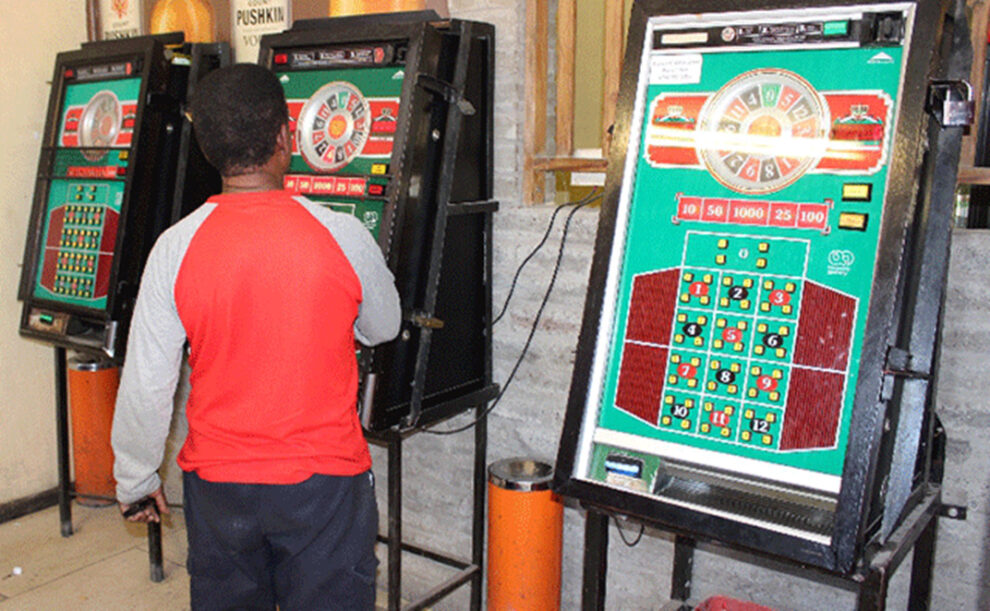THE Ministry of Environment, Forestry and Tourism has extended the deadline for the operators of gambling machines to formalise and register their businesses.
Ministry spokesperson Romeo Muyunda says only 465 gambling machine operators out of 13 000 have so far complied with the directive to register.
“We have done enough in sensitising the issue to the public in terms of educating and informing them on the importance of registering their gambling machines,” he says.
The registration of gambling machines is being enforced under the Gaming and Entertainment Control Act, which came into effect on 1 December 2021.
Muyunda says the ministry has undertaken awareness activities in different regions, but has, however, observed a low turnout of gambling machine owners.
“We want people to register to avoid illegal gambling machines. It’s too risky to be illegal. We want to ensure that everyone complies,” he says.
According to Muyunda, the ministry does not want to resort to making use of law-enforcement agencies, and has therefore extended the registration deadline to August.
“We don’t want people to be policed or pushed around. Also, there is the fear that the ministry would confiscate the gambling machines, but that will not happen,” he says.
Muyunda says gambling machine owners cannot say they are not aware of the requirement to register their machines.
He says the initiative will generate a significant amount of money which will be used to uplift and regulate the gambling industry.
“It will also be used to make sure the industry remains profitable,” Muyunda says.
Application forms can be obtained at the ministry’s regional offices.
“There are currently no online applications and only hard copies can be submitted,” he says.
MACHINE LICENCE APPLICATION EXTENDED
Minister of environment, forestry and tourism Pohamba Shifeta has also extended the grace period for gambling machine operators to apply for machine licences until 31 August.
“Operators in the industry are, however, encouraged to familiarise themselves with the entire content of the act and regulations. Applications can be submitted by hand or courier to the ministry’s headquarters,” he says.
COMPLY
Muyunda says the gambling board will continue to exercise their oversight function in accordance with the law to ensure that the gaming and entertainment industry is managed and supervised within the existing laws.
“The ministry urges the gambling and entertainment industry to comply with the provisions of the new act to avoid operating gambling machines without licences and [face] subsequent legal consequences,” he says.
Muyunda says the ministry will ensure that the industry is kept crime free, safe and transparent to protect players, the public, and licence holders, as well as to prevent the exploitation of children and vulnerable adults.
CONSEQUENCES
According to the regulations of the act, a person who contravenes or fails to comply with the act commits an offence and is on conviction liable to a fine not exceeding N$20 000 or to imprisonment for a period not exceeding two years, or to both.
FLASHBACK
The Namibian last year reported that the act provides that individuals who own shebeens with gambling machines pay the government N$10 000, bar owners N$25 000, gambling house owners N$50 000, and casino owners N$80 000 per gambling machine every year.
This levy is to be paid to the Ministry of Finance and Public Enterprises.
At a public meeting to create awareness and understanding of the requirements of the new Gambling and Entertainment Control Act at Oshakati, Shifeta said gambling has destroyed families and communities.
He said operators should not only consider their own bread, but also their clients.
Peter Amadhila, the vice president of the Namibia Local Business Association, at the same event said the proposed levies are unaffordable.
“Considering the recently passed law, the associated fees are extremely expensive and prohibitive. Many business people will become indebted as a result,” he said.
Meanwhile, Namibia Retailing Traders Association chairperson Salomon Kapia says the law that requires shebeen owners to pay for their machines is a threat to their small businesses.
Kapia says they cannot afford paying the proposed levies.
“We are small businesses and we are not well established. Why should we pay if we make less? The governement does not support shebeens in any way,” he says.
Kapia says the government has not consulted them before implementing the new law.
“The government must remember that gambling machine players can win more than what is contained in the machine. Not all machines are profitable,” he says.
Kapia says the association does not support the act.
“The government must do research before passing laws. It’s not guaranteed that we get more money. And their excuse that gambling machines destroy families is not true at all. They are there for fun,” he says.
“All the opportunities we try to create, the government always tries to find a way to complicate it for us,” he says.
Source : Namibian
















